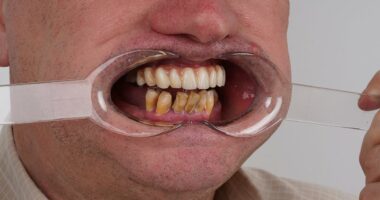Share this @internewscast.com
It famously plagued King Henry VIII and has been dubbed the “disease of kings” due to its association with rich foods and alcohol consumption. Today, gout affects an estimated one in 40 Brits, with cases rising in recent years. A type of arthritis, the condition can cause sudden, severe join pain, usually in the big toe. It can also affect other joints like the ankles, knees and fingers.
Several factors including obesity, genetics, other medical conditions and a diet high in red meat or alcohol can increase risk of gout, according to Superdrug’s pharmacy superintendent Niamh McMillan. She set out four actions people can take to try and reduce their risk of developing gout:
Stay hydrated
Gout is caused by the build up of uric acid crystals. Uric acid is processed in the kidneys and leaves the body when you urinate. When you are dehydrated, less frequent urination can lead to uric acid building up at a faster rate.
Ms McMillan said: “Aim to drink at least eight glasses of water every day to stay hydrated and help flush the uric acid out of your body.
“Avoid sugary drinks and excessive alcohol, which can exacerbate gout.”
Eat a balanced diet
Foods such as red meat and alcohol are rich in purine, compounds which break down into uric acid. These foods can raise the uric acid levels in the body which then accumulate in the bloodstream, Ms McMillan said.
She added: “Limit foods high in purines such as red meat, sardines and anchovies and instead focus on a diet rich in fruit, vegetables and whole grains which can help manage uric acid levels.”
Maintain a healthy weight
Carrying excess weight can make your kidneys work less efficiently, leading to higher levels of uric acid in the blood.
Ms McMillan explained: “Losing excess weight can help lower uric acid levels and also help to reduce the strain on joints.
“Aim for gradual weight loss through a balanced diet and regular exercise.”
Exercise regularly
“Regular physical activity can help maintain a healthy weight and support joint health,” Ms McMillan said.
Low impact activities such as walking, swimming and cycling place less stress on the joints.
However, you should avoid high impact exercises during a gout flare up, in order to avoid further joint strain.
Ms McMillan added: “Seek further medical advice from a healthcare clinician or GP if you’re concerned you may be suffering from gout.”















